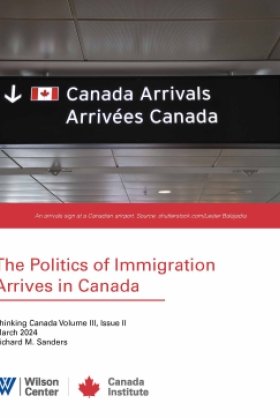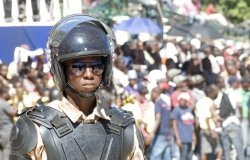Film Screening -- "A Dream in Doubt"
"A Dream in Doubt" tells the story of Balbir Singh Sodhi, the first American to be killed in a hate crime after 9/11.Sodhi's killer thought that Sodhi, a Sikh who wore a turban, somehow bore responsibility for the attacks on the World Trade Center. The film features Rana Sodhi as he seeks to reconcile his brother's death with the success that the family has enjoyed since immigrating to the United States.
Overview
Rev. Dr. Welton Gaddy, President, Interfaith Alliance; "A Dream in Doubt" director Tami R. Yeager; co-producer Preetmohan Singh; Rana Singh Sodhi. Co-sponsored by the Interfaith Alliance Foundation and TRY Productions.
On September 11, 2001, terrorists dive-bombed the World Trade Center and the Pentagon. On September 15, Balbir Singh Sodhi was murdered in Mesa, Arizona by a man who assumed that because Singh wore a turban he was both a Muslim and somehow responsible for the attacks. Sodhi, a Sikh, became the first post-9/11 hate crime victim in the United States.
That story is recounted in the documentary "A Dream in Doubt," which was shown and discussed in a program organized by the Division of United States Studies. The film is also the tale of the way in which the extended Sodhi family, and particularly Sodhi's brother Rana Singh Sodhi, has wrestled with grief at the tragedy, fear of other anti-Sikh violence here, and a strong desire to maintain faith in the United States as a bastion of equality and justice.
The five Sodhi brothers emigrated from a small village in the Punjab region of India in 1985, after the 1984 assassination of Prime Minister Indira Gandhi by her Sikh guards led to anti-Sikh violence. They describe themselves as having come to the United States in search of religious liberty. They believe, according to the film, that "there is one God and different paths," and that the United States Constitution stands for equality and respect for all religions.
By 2001, the Sodhi brothers had families and successful businesses, including the Indian Delhi Palace restaurant in Phoenix. This is a country, they said, where you can "work hard and enjoy life." Balbir Singh Sodhi had a Chevron gas station in Mesa. It was there that he was shot and killed by an Arizonan incensed at the events of 9/11.
In August, 2002, Sukhpal Singh Sodhi, another brother, was shot and killed while driving his taxicab in San Francisco. The police in that city are uncertain whether Sodhi was targeted for a hate crime or was the unintended victim of a gang shoot-out. What is certain is that Sikhs in the Phoenix area continued to be subjected to hate crimes. In 2003, a Sikh truck driver was shot. His assailant has not been caught. A month later, another Sikh was assaulted at work: punched, his turban pulled off, spat on. Sikh families including that of Rana Singh Sodhi received threatening night-time telephone calls. Non-Sikhs yelled epithets at them on the street.
The Sikhs in the Phoenix area became concerned that anyone wearing a turban was a target. And Rana Singh Sodhi's young children were taunted at school with chants of "bin Laden."
Rana Singh Sodhi and his wife responded by going to the school to tell the children about Sikhs and their religion. "We need to move forward," Sodhi said, adding that Sikhs in India are still waiting for justice but that there is justice in the United States. He saw his belief as being confirmed when Balbir Singh Sodhi's admitted assassin was convicted of first degree murder and sentenced to death (the Arizona Supreme Court subsequently changed the sentence to life imprisonment).
In the conversation that followed the screening and that was moderated by Rev. Dr. Welton Gaddy, Rana Singh Sodhi emphasized the support that the family has gotten from large segments of the Phoenix citizenry. Director Tami Yeager noted that the Department of Justice declared in 2006 that there were over 750 hate crimes in the years immediately after 9/11 but that the Bureau of Statistics estimates that the number is at least fifteen times as high. She and co-producer Preetmohan Singh spoke of the need for a national conversation about the way Americans deal with difference.
The U.S. Congress has found that "[T]he incidence of violence motivated by the actual or perceived race, color, religion, national origin, gender, sexual orientation, gender identity, or disability of the victim poses a serious national problem" that "devastates not just the actual victim and the family and friends of the victim, but frequently savages the community sharing the traits that caused the victim to be selected." The House and Senate have authorized an enhanced federal role in the prosecution of hate crimes (the Local Law Enforcement Hate Crimes Prevention Act of 2007, quoted above and passed by both houses of Congress as part of the 2008 Defense Reauthorization Bill but yet to go to conference committee). Federal policy toward hate crimes clearly is now part of this nation's political agenda.
Philippa Strum, Director, Division of U.S. Studies 202-691-4147
Thank you for your interest in this event. Please send any feedback or questions to our Events staff.










